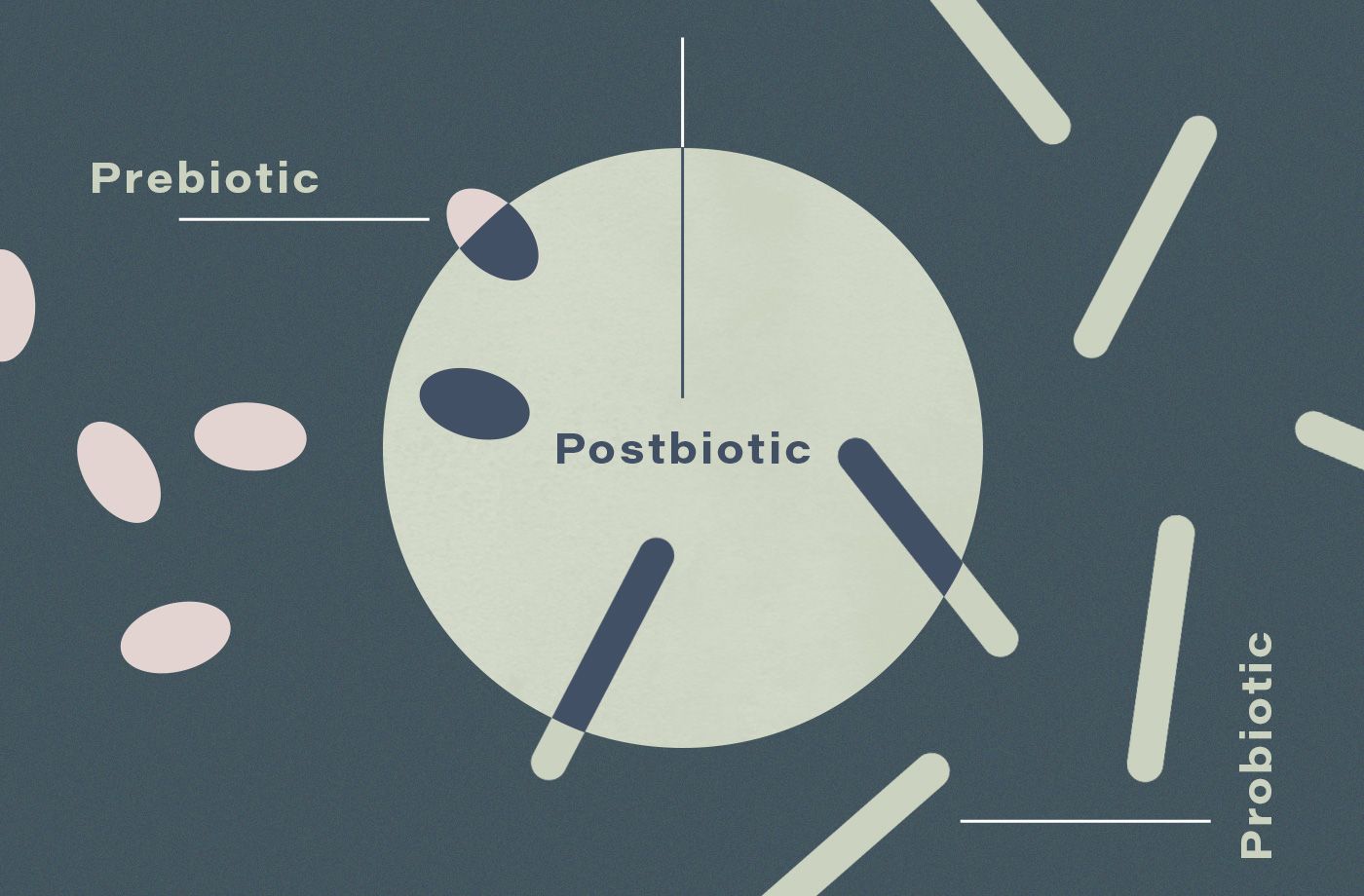Physical Address
304 North Cardinal St.
Dorchester Center, MA 02124
Physical Address
304 North Cardinal St.
Dorchester Center, MA 02124

Postbiotics are the beneficial byproducts of the lively microbial community within us. It comprises the metabolites or byproducts generated from the activities of probiotics in the gut, particularly through processes like fermentation. Prebiotics, in contrast, are nutrients that modify the composition of the gut microbiota by acting as food that stimulates the growth of beneficial probiotic bacteria.
In essence, the sequence unfolds with prebiotics, followed by probiotics, and then postbiotics. Unlike probiotics, which are living microbes and face challenges with dosage standardization and predictability, postbiotics provide a solution. They are easily transportable and storable, requiring low temperatures and boasting an extended shelf life. Distinct from probiotics, excluding bacterial lysates, postbiotics excel in precision and speed of production technology, as well as quantitative control. This article provides information about the types, sources, benefits, and side effects of postbiotics.

SCFAs, encompassing acetic, propionic, and butyric acids, are pivotal in the realm of postbiotics. Their extensive study revolves around their distinct contributions to gut health and their impact on overall physiological well-being.
Bioactive peptides are formed during the breakdown of proteins in the fermentation process. These compounds may possess antimicrobial properties and contribute to immune system regulation.
Organic acids, such as lactic acid generated in fermentation, enhance the diverse makeup of postbiotics. Their existence contributes to potential health advantages, highlighting the intricate nature of this spectrum of bioactive compounds.

Capsules or powders containing beneficial bacteria that produce postbiotics during fermentation.

Promoting digestive equilibrium, postbiotics, particularly short-chain fatty acids (SCFAs), contribute to a harmonious gut environment. They facilitate the digestion process, enhance nutrient absorption, and provide comprehensive support for overall digestive well-being by ensuring a balanced and optimal functioning gastrointestinal system.
It possesses the capacity to improve immune function. These active compounds, originating from the fermentation of prebiotics, can positively impact the immune system, nurturing a strong and agile defense mechanism against infections and diseases.
It may aid metabolic and weight management. These bioactive compounds, often derived from the fermentation process, have shown potential in regulating metabolism and supporting weight control, contributing to a holistic approach to overall health and well-being.
It might offer a more tolerable option than probiotics. While probiotics boost beneficial bacteria, some individuals may struggle with tolerance. Postbiotics, arising from the fermentation of prebiotics, could present a suitable alternative for those facing difficulties with probiotic consumption.
It shows potential in preventing and treating diarrhea. These bioactive compounds, arising from the fermentation of prebiotics, contribute to a balanced gut environment, potentially inhibiting the growth of harmful pathogens and promoting digestive health, thereby aiding in the prevention and management of diarrhea.
It may assist with allergies. These bioactive compounds, derived from prebiotic fermentation, contribute to immune modulation, potentially alleviating allergic responses and promoting a balanced immune system.
While postbiotics are generally considered safe, especially when obtained through natural dietary sources, some individuals may experience mild side effects. These can include
It could have interactions with medications. It's essential for individuals taking medication to consult with a healthcare professional to comprehend and manage possible interactions effectively. This precautionary measure guarantees the safe incorporation of postbiotics into a health routine without compromising the efficacy of prescribed medications.
Overconsumption of postbiotic-rich foods may lead to excessive fermentation, causing discomfort.
Since postbiotics are a relatively new area of study, regulatory concerns may arise, especially with supplements lacking standardized guidelines.
In conclusion, postbiotics are beneficial for holistic well-being. From fostering digestive health to fortifying the immune system and potentially aiding in disease prevention, it showcases diverse health benefits. Incorporating them into daily life through natural dietary sources and supplements offers a practical approach. However, mindful consumption and individual considerations are crucial. As research evolves, postbiotics stand as key in optimizing gut health and, consequently, overall vitality. Embracing this nuanced understanding, individuals can embark on a journey toward enhanced health by nurturing the symbiotic relationship between their bodies and these beneficial bioactive compounds.